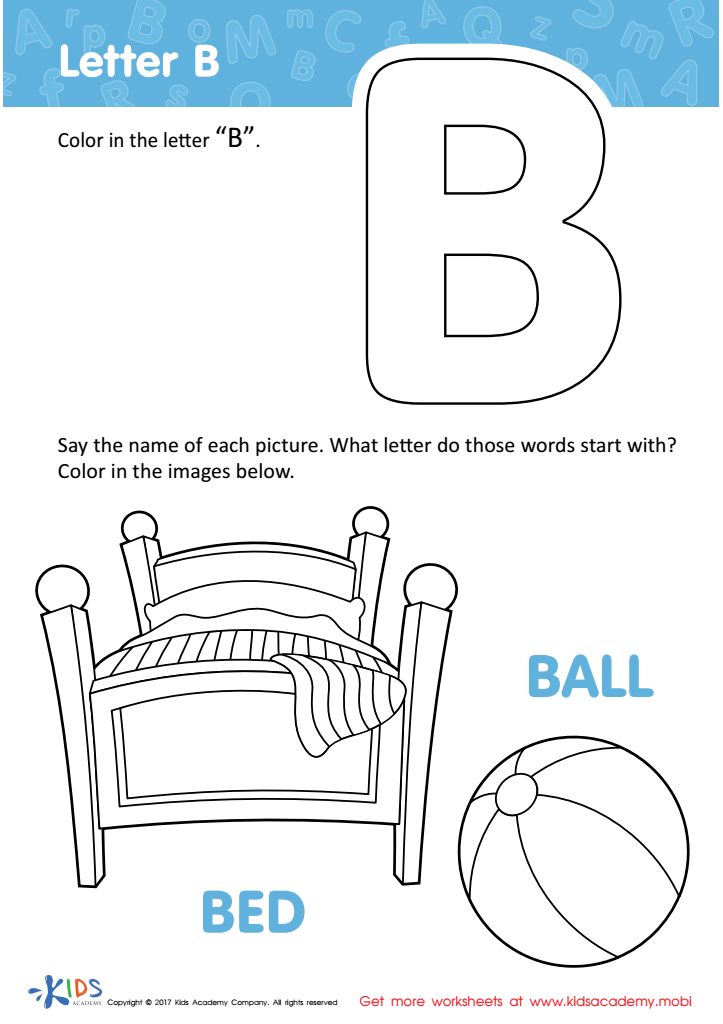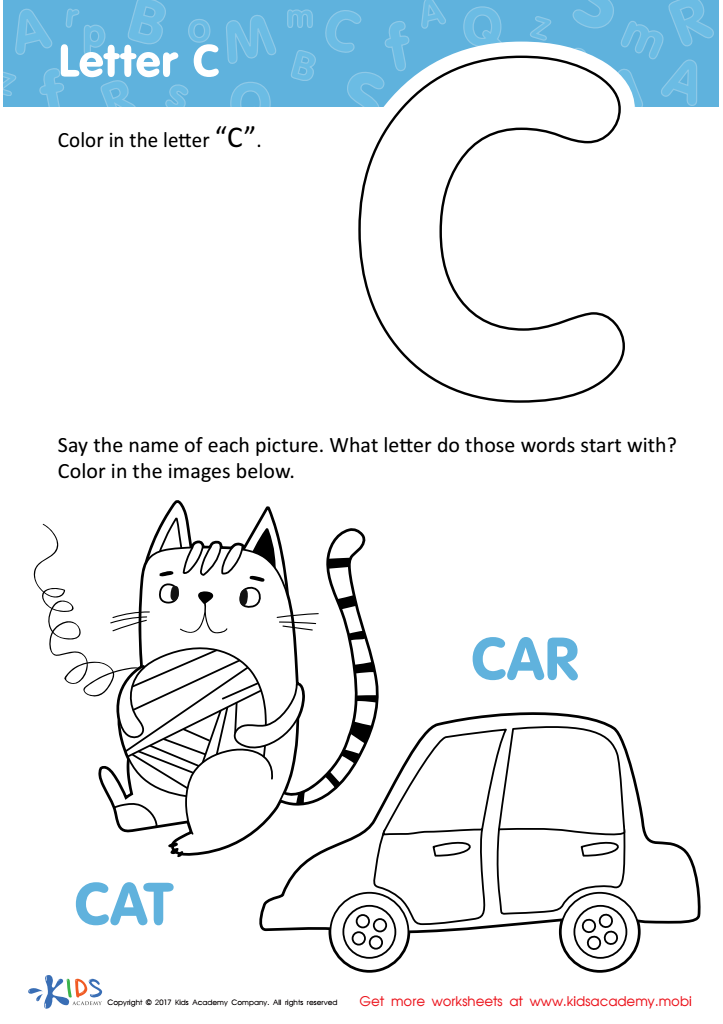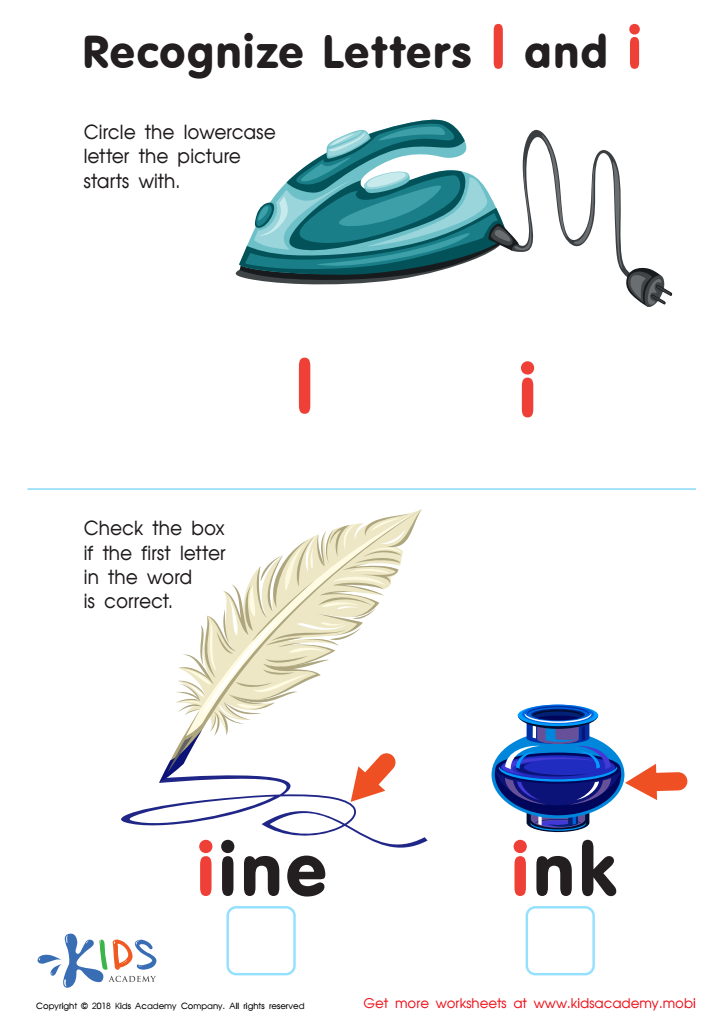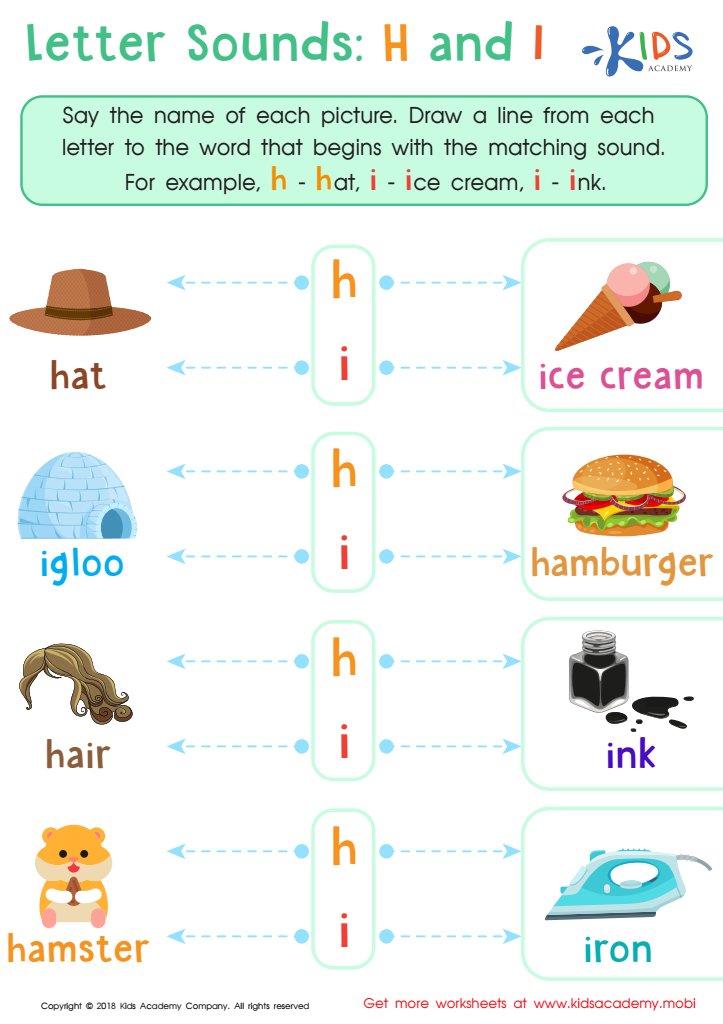Writing practice Normal Alphabet Worksheets for Ages 3-4
6 filtered results
-
From - To
Discover our engaging Writing Practice Normal Alphabet Worksheets designed specifically for children aged 3-4. These worksheets provide young learners with a fun and interactive way to develop their writing skills while mastering the English alphabet. Each worksheet features clear letters, encouraging correct formation and promoting confidence in early writing. Through guided activities, kids will practice tracing and writing both uppercase and lowercase letters, supporting their fine motor skills and hand-eye coordination. Perfect for at-home learning or classroom use, our printable worksheets make learning the alphabet an enjoyable journey for your little ones. Start building a strong foundation for literacy today!


Letter B Coloring Sheet


Letter A Coloring Sheet


Letter H Tracing Page


Letter C Coloring Sheet


Recognize Letters l and i Worksheet


Letter H and I Sounds Worksheet
Writing practice using the normal alphabet for children aged 3-4 is essential for foundational literacy skills. At this tender age, children are developing fine motor skills, hand-eye coordination, and an understanding of letters and sounds, all pivotal for early reading and writing. Engaging in writing activities helps reinforce letter recognition, enabling children to differentiate between the shapes and sounds of the alphabet.
Moreover, writing encourages cognitive development. Children learn to express their thoughts and emotions through he or she communicates by drawing symbols or letters. This process nurtures creativity and critical thinking. Consistent writing practice also lays the groundwork for future academic success, as language skills are closely linked to overall educational achievement.
Parents and teachers should recognize that writing at an early age is not just about forming letters but also about fostering confidence and a love for language. When children engage in writing, they feel empowered as communicators, setting a positive precedent for their future learning experiences. By providing a supportive environment, adults can encourage exploration, cultivate curiosity, and make learning fun, thus building a strong literacy foundation that will benefit children throughout their educational journey.
 Assign to My Students
Assign to My Students



















